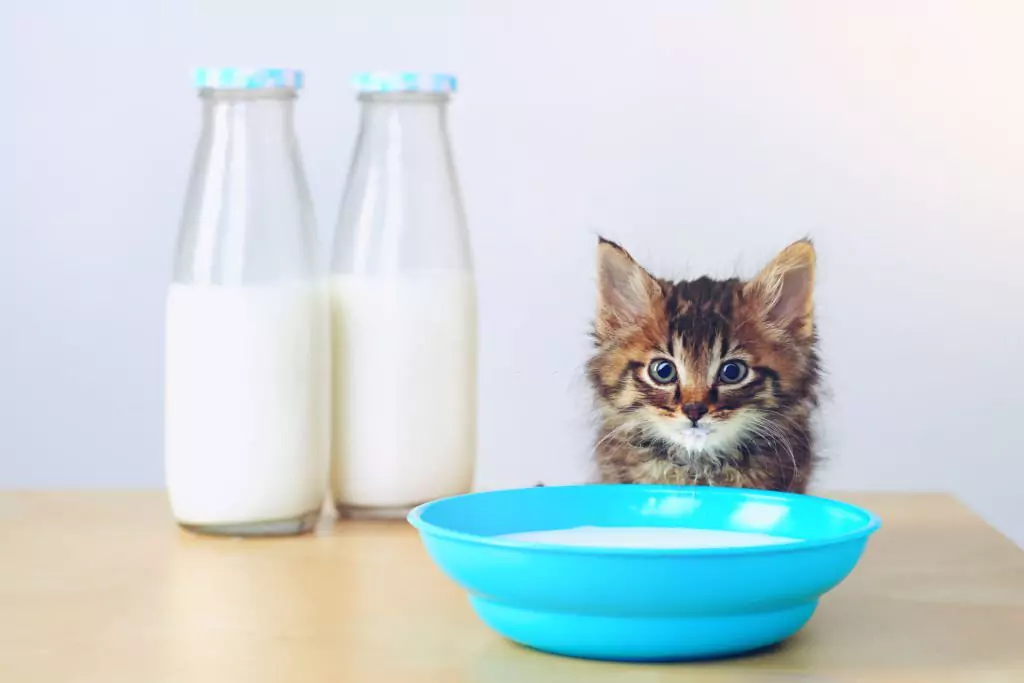Introduction to the topic of cats and almond milk
Almond milk has gained significant popularity in recent years as a dairy-free alternative for humans. It is made by blending almonds with water and straining the mixture to remove any solids. This plant-based milk is often chosen by individuals who are lactose intolerant or follow a vegan diet. However, when it comes to our feline friends, the question arises: can cats safely consume almond milk?

Understanding the nutritional needs of cats
Before we delve into whether cats can consume almond milk, it is important to understand the dietary requirements of these animals. Cats are obligate carnivores, which means that they require a diet primarily consisting of animal protein. They have specific nutritional needs that are different from humans and even other animals.
When comparing the nutritional content of almond milk and cat milk, it becomes clear that they are not equivalent. Cat milk is specifically formulated to meet the nutritional needs of kittens, providing them with the necessary nutrients for growth and development. On the other hand, almond milk lacks many essential nutrients that cats require, such as taurine, which is crucial for their heart health and vision.
The potential risks of giving cats almond milk
While almond milk may seem like a harmless alternative to cow’s milk for cats, there are potential risks associated with giving it to them. One of the main concerns is that almond milk does not provide the necessary nutrients that cats need to thrive. Cats require a diet rich in animal protein, and almond milk simply does not fulfill this requirement.
Additionally, almond milk contains a high amount of fat, which can be problematic for cats. Cats are prone to developing pancreatitis, a condition characterized by inflammation of the pancreas. Feeding them a high-fat diet can increase their risk of developing this condition.
The benefits of almond milk for cats
Despite the potential risks, there are some potential benefits of almond milk for cats. Almond milk is low in lactose, making it a suitable option for cats that are lactose intolerant. It can also be used as a treat or occasional supplement to their regular diet.
Almond milk contains vitamin E, which is an antioxidant that can help support a cat’s immune system. It also contains calcium, which is important for maintaining strong bones and teeth. However, it is important to note that these nutrients can be obtained from other sources that are more suitable for cats.
Alternatives to almond milk for cats
If you are looking for alternative milk options for your cat, there are several options to consider. One of the best options is cat milk, which is specifically formulated to meet the nutritional needs of cats. It is readily available in pet stores and is a safer choice compared to almond milk.
Another option is goat’s milk, which is often well-tolerated by cats. Goat’s milk is lower in lactose compared to cow’s milk and can be a suitable alternative for cats that are lactose intolerant. However, it is important to introduce any new food gradually and monitor your cat’s reaction.
How to introduce almond milk to your cat’s diet
If you still decide to introduce almond milk to your cat’s diet, it is important to do so safely. Start by offering a small amount of almond milk as a treat and observe your cat’s reaction. If there are no adverse effects, you can gradually increase the amount over time.
It is important to note that almond milk should never replace a cat’s regular diet. It should only be given as an occasional treat or supplement. Always consult with your veterinarian before making any changes to your cat’s diet.
Signs that your cat may be allergic to almond milk
Just like humans, cats can develop allergies to certain foods, including almond milk. It is important to be aware of the signs of an allergic reaction in cats. These may include vomiting, diarrhea, itching, swelling, and difficulty breathing. If you notice any of these symptoms after giving your cat almond milk, discontinue use immediately and consult with your veterinarian.
Conclusion and final thoughts on cats and almond milk
In conclusion, while almond milk may be a popular dairy-free alternative for humans, it is not a suitable option for cats. Cats have specific nutritional needs that are best met through a diet rich in animal protein. Almond milk lacks many essential nutrients that cats require and can potentially lead to health issues.
If you are looking for alternative milk options for your cat, it is best to choose cat milk or goat’s milk, which are specifically formulated to meet their nutritional needs. Always consult with your veterinarian before making any changes to your cat’s diet to ensure their health and well-being.